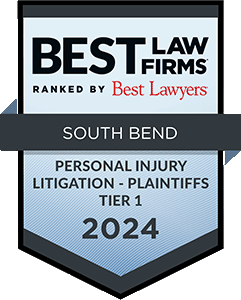 There has been a sevenfold increase in the number of drivers who were killed in auto accidents while under the influence of prescription opioids, according to a new report published in the American Journal of Public Health.
There has been a sevenfold increase in the number of drivers who were killed in auto accidents while under the influence of prescription opioids, according to a new report published in the American Journal of Public Health.
Researchers from Columbia University analyzed the deaths of 37,000 drivers in six states and discovered that 24 percent had drugs in their systems. Three percent of that group of drivers had prescription narcotics in their systems.
Prescription medications can cause drivers to experience drowsiness, impaired judgment and slower reaction time, says Stanford Chihuri, the report’s lead researcher.
He says that the increase in the percentage of drivers who tested positive for opioids is an urgent public health concern.
Below, our experienced car accident lawyers in South Bend review the many dangers of driving under the influence of drugs and offer tips on determining when it is safe to drive if you are taking prescription medications.
How Drugs Affect Driving
Drugs can cause a variety of physical, mental and visual impairments that endanger the safety of drivers, passengers and others on the road.
Illegal drugs can cause the following issues when driving, according to the National Institute on Drug Abuse:
- Marijuana – Smoking marijuana can cause a decrease in coordination, slowing of reaction time and impairment of the ability to judge time and distance. Studies have also shown that marijuana often causes drivers to weave in and out of their lanes.
- Cocaine and methamphetamines – These drugs increase the risk of aggressive or reckless behavior when behind the wheel.
- Benzodiazepines and other sedatives – These drugs often cause dizziness and drowsiness.
Effects of Prescription Drugs
People take prescription medications to treat a variety of illnesses and medical conditions, from allergies, depression, heart conditions and anxiety to pain, muscle spasms and Parkinson’s disease.
While these medications can help individuals manage these issues, they can also cause a variety of reactions that can impair a person’s ability to operate a car safely, including:
- Drowsiness
- Dizziness
- Trouble focusing and paying attention
- Blurry vision
- Slower movements
A study published in the Journal of Palliative Medicine revealed that 20 to 60 percent of patients taking prescription opioids experienced sedation, usually when they first started the medication or when the dosage increased.
Should I Drive if I’m Taking Prescription Medications?
Most people who are taking prescription medications are able to drive safely, according to the U.S. Food and Drug Administration (FDA).
However, the FDA advises you to take several steps to ensure the prescription medications you are taking are not making it unsafe to drive:
- Ask your doctor about side effects – Whenever a doctor prescribes medication, ask about the side effects, particularly how the medication could affect your ability to operate a car safely. Inform the doctor of any over-the-counter medications you are taking so he or she can determine if there are any drug interactions that could cause dangerous side effects.
- Avoid driving until you know how a new medication affects you – There is no way to know how you will react to a medication until you start taking it.
- Ask your pharmacist about side effects – Your pharmacist can also inform you about dangerous side effects or drug interactions.
- Monitor your reaction to medications – When you start taking a new prescription, monitor how it makes you feel. Do you notice blurry vision? Do you feel tired or weak and slow? If you are experiencing these side effects, you should avoid driving and talk to your doctor or pharmacist.
- Let your doctor and pharmacist know about any negative side effects – They may be able to prescribe another medication that will not cause side effects. They can also adjust the dosage, timing of doses, or recommend you take part in an exercise or nutrition program so you do not need medication.
If a prescription makes it dangerous to drive but you cannot stop taking it for health reasons, there are other transportation options, including:
- Rides from friends or family members
- Taxis
- Ridesharing services
- Public transportation
- Walking
This may be a little bit of an inconvenience, but the important thing is that you are not driving when you are at increased risk of a crash.
Contact Our South Bend Personal Injury Attorneys
Car accidents involving drivers under the influence of drugs or alcohol often result in severe injuries or deaths.
If you were injured in this type of crash or lost a loved one, you may be able to file a claim to obtain compensation for medical bills, lost wages and other damages.
Schedule a free, no obligation legal consultation with our personal injury attorneys in South Bend to determine your legal options. We take cases on contingency, so you will only have to pay if we recover fair compensation.
Contact Pfeifer, Morgan & Stesiak today.











